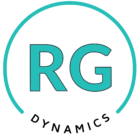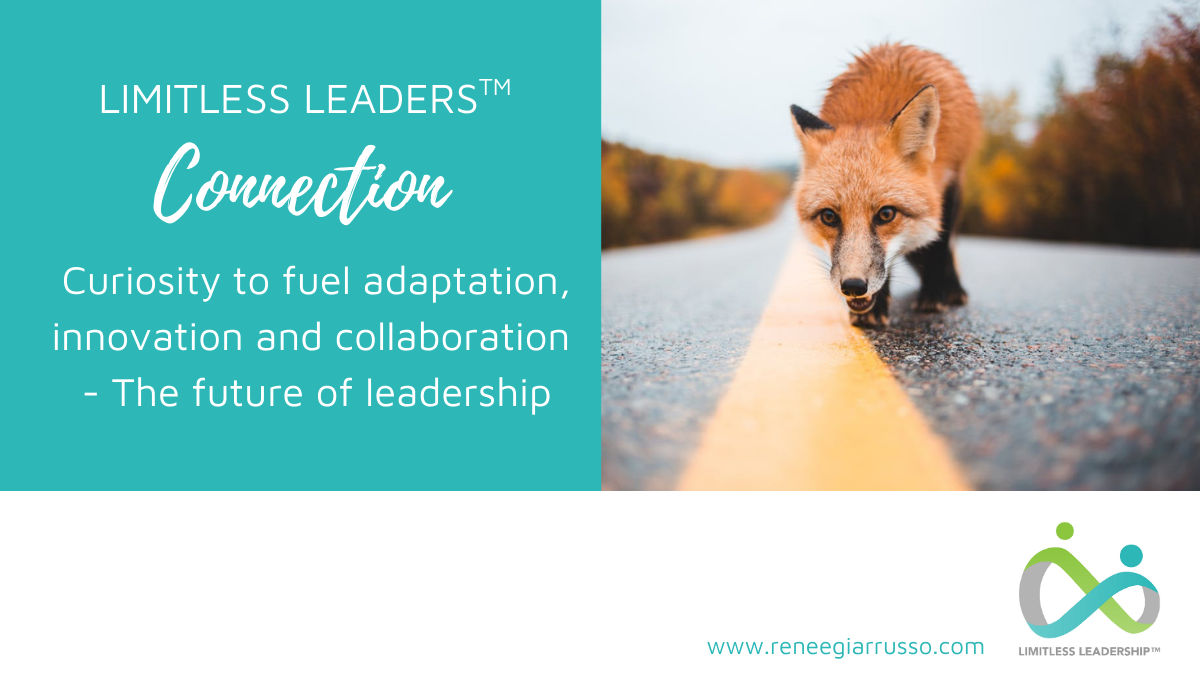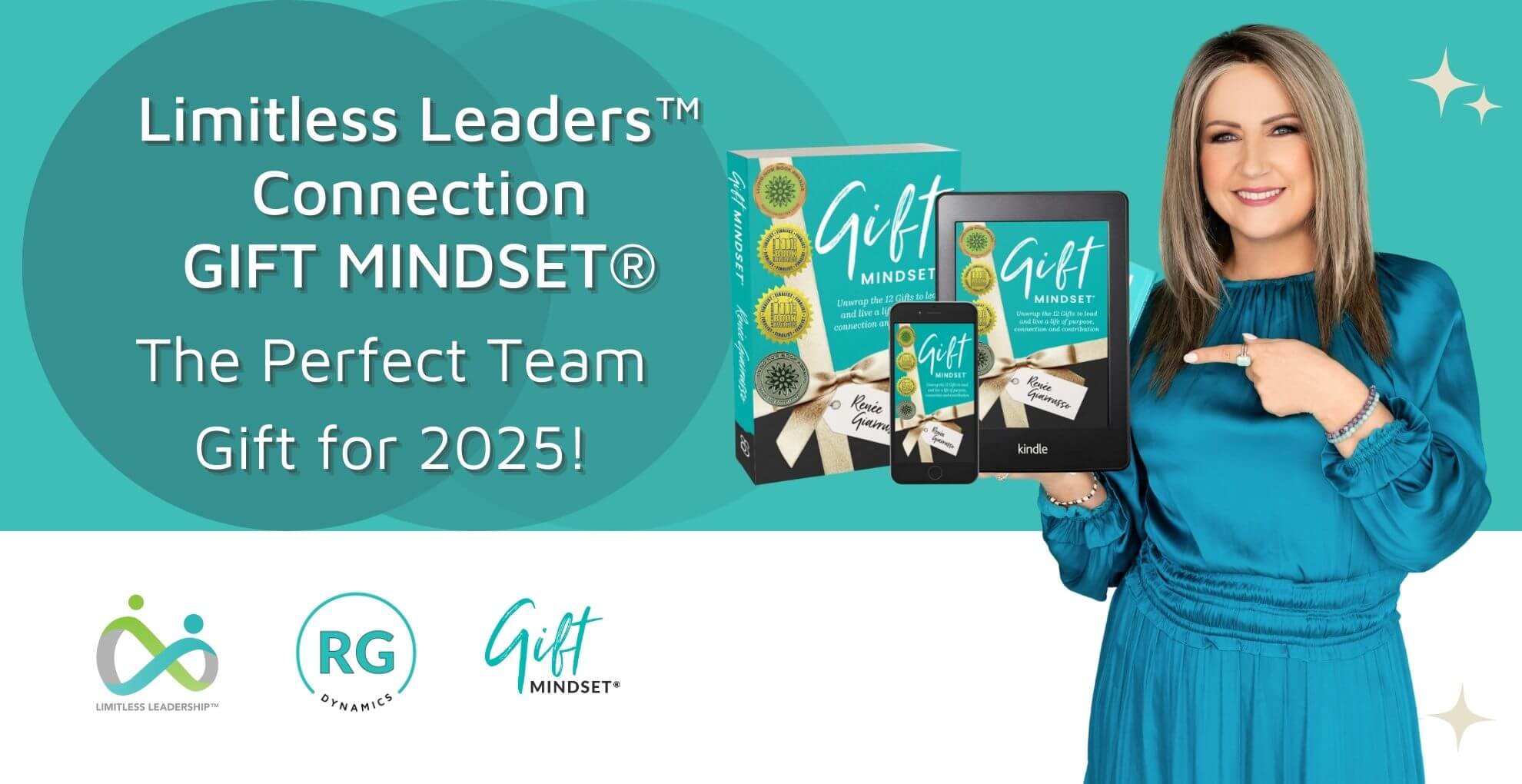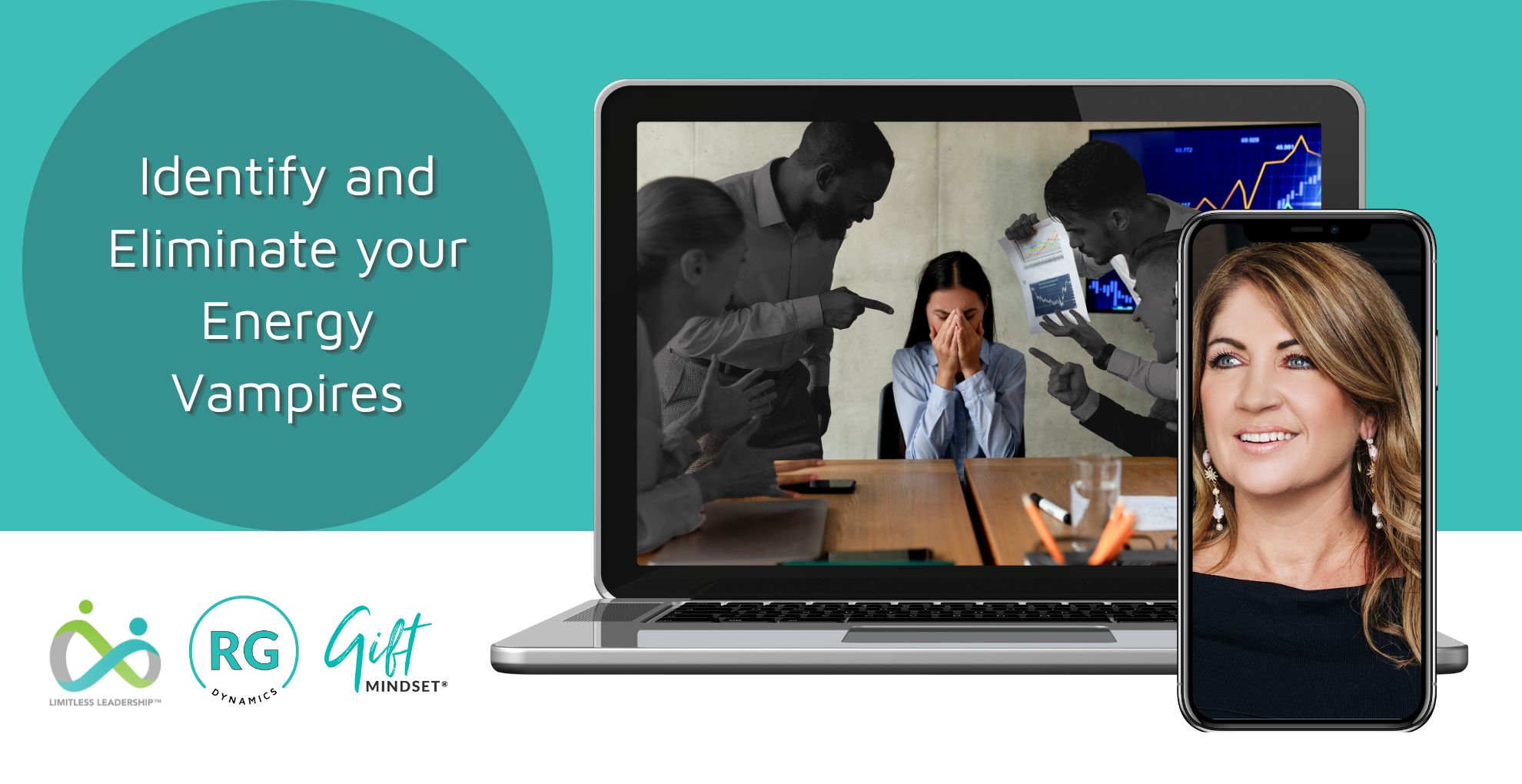To lead an organisation and create a culture open to change, innovation and creativity, curiosity is key. The future of leadership requires us now, more than ever, to adapt, innovate and collaborate, and I reckon curiosity deserves some attention.
Curiosity is a skill and also a characteristic – a motivating desire for more information. It’s the engine that drives learning, innovation and achievement. Being curious requires us to ask questions of ourselves, situations and others. This helps us grow and be what I call ‘in flow’.
Ask to know. Know to grow. Grow to be in flow.
–Renee Giarrusso
[bctt tweet=”Curiosity is a skill and also a characteristic – a motivating desire for more information.” username=”Renee_Giarrusso”]
Dr Daniel Berlyne was a pioneer in curiosity research in the ’60s. His work in the field of experimental and exploratory psychology has served as the foundational research for many scientists who have followed. He stated that curiosity is innate to our being, not unlike food and water.
He also concluded that it is instigated by three key sources:
- novelty – that which is new or unknown to us
- ambiguity – that which is confusing to us
- complexity – partially known to us and where we seek to know more
All these sources of curiosity surround us – it’s up to us to raise our emotional intelligence, be aware of these, and decide on what to do next.
Four keys to curiosity
One – Have an open mind
This takes discipline, and the more open you are, the more likely you will be to receive new information and ideas that can help you to continue to be curious.
Avoid closing yourself or others off and stretch out of your safe zone – anything outside of your comfort zone is growth. Don’t be afraid to ask questions and stay present when listening. I ask myself ‘What can I learn from this person?’ – this opens up my mind to receive and not discount the ideas or opinions of others.
Two – Ask questions
Asking questions helps you become a more effective communicator, as well as build stronger relationships and leadership capabilities. Asking questions with intention is a great way to understand, seek information and explore your curiosity in the process.
Why do we often forget to question ourselves and the things we do and think?
Whether you are questioning another person, yourself or a situation, asking open questions is key. This is where the answer can’t be yes or no, and it is a great way to elicit information and get the other person talking. After choosing open questions, drill down with closed questions, which can be answered with yes or no.
A key tip to asking open questions is to add ‘tell me about’ to the start of your questions – this will turn them into an open question.
When we ask curious, open questions, we need to be open to not knowing the answer, and not assume or judge. Our intention should be to focus on learning and understanding more.
Curious questions
- What do I/you think of this idea?
- How could this work?
- Why do I/you think this idea could work?
- What could go right and wrong?
- What would I/you do if there were no limitations and unlimited time and resources?
- What is a great question I could ask you right now?
Flipping statements into questions
When we think about something, we articulate it in our minds as either a statement or a question. For example, flipping a statement such as ‘What that team did was great’ to ‘I wonder how that team achieved that?’ will change your energy and provoke questioning and conversations. It changes a one-dimensional thought to a two-dimensional question. Take the time to observe the statements you think or write, such as in an email, and flip these into questions.
Three – Listen and be present
Listening is one of the most challenging skills to master – communication isn’t just about what you say; it is 50% speaking and 50% listening. The research found that only 2% of leaders have ever received any training on how to listen, and most people struggle to listen and not just ‘hear’.
As human beings, we aren’t wired to listen, although it is one of the first things we learn in our mother’s womb. We think at more than 400 words a minute and speak at 150, so it’s no wonder our minds wander when we should be listening.
To be truly curious, we need to listen to:
- ourselves both logically and intuitively
- the responses of others, without bias or judgement
- situations that present themselves
- thoughts, feedback and feelings through all our senses
Four – Be interested
Reframe ‘boring’ situations and people to ‘interesting’. A simple reframe can change your energy, attitude and ability to be curious. We can learn much from others if we have an open mind and question things.
Sometimes the simple tasks and decisions are carried out in autopilot. Often, we become time-poor and miss opportunities.
When the stakes are high, and the pressure is on, it can be difficult for leaders, to pause before acting, take a step back and reflect on why they are doing what they are doing.
Sometimes questioning our actions on the bigger things can be hampered by our inaction on questioning the smaller things.
Take the time to build your curiosity muscle and create the space to make it part of your team and organisational culture.
I’d love to hear what you do to instil curiosity?
Lead to be limitless…
PS: Want to skyrocket your success from working anywhere? We've launched our new online program, and you can read more about that here.
Ever wondered what Renée gets up to when she isn't working with her clients? She's doing this.
If this article has resonated with you in any way – I’d love to hear your thoughts – get in touch.
Being in service to my clients is why I do what I do, and your feedback, insight and any suggestions are always embraced.
Find out where you sit on the Leadership Ladder, your responses are anonymous, and the results summarised to help us better understand where our market sits so that we can continue to provide, insights, tools and solutions to assist you to move up to be LIMITLESS, co-creative and stand out.
Renée is a mentor, coach, expert facilitator and keynote speaker. She is the author of ‘Limitless Leadership’ and co-author of ‘Leaders of Influence’.
Follow Renée on Facebook, Instagram, IGTV or Twitter, or subscribe to her blog here or new podcast here.






